CCS Group
At UIC, the Climate Change Studies Group has formed to collect resources and explore opportunities for students, faculty, and staff. While rooted in the College of Liberal Arts and Sciences, it has since expanded to include interested faculty from other colleges. If you are interested in working with the CCS group, please contact a member to discuss.
Contact Info
Max Berkelhammer
Phone:
Email:
Rosa Cabrera
Phone:
Email:
Ralph Cintrón
Phone:
Email:
George Crabtree
Phone:
Email:
Ömür Harmansah
Phone:
Email:
Thomas Aláan Lipsmeyer
Phone:
Email:
Kathryn Nagy
Phone:
Email:
Max Berkelhammer, PhD

Max Berkelhammer, PhD, focuses on the interactions between the land surface and the atmosphere with an emphasis on how climate change impacts the global carbon and water budgets. The motivation for this line of inquiry is to provide better constraints on how land surfaces processes can serve as a positive or negative feedback on global warming. The work involves field investigations into real-time surface fluxes as well as reconstructions of past land surface processes using paleoclimate proxies to study Earth system dynamics prior to strong anthropogenic influences. In addition, his research group uses satellite data and climate models to provide global context for the intensive site-level studies.
Max’s current projects are heavily focused on interactions between vegetation and hydrology in ecosystems ranging from cities, alpine forests in Colorado to agricultural and prairie lands of the midwestern US. These projects include the development of novel instruments and modeling tools to develop new theory on the way vegetation can act to both modulate the climate and be affected by the climate. Prior to this, Max has led research far afield including multiple field seasons at Summit Station on top of the Greenland Ice sheet and the Dry Valleys of Antarctica looking at interactions between ice sheets and the atmosphere in a warming world.
Max received his PhD in Earth Sciences from the University of Southern California and completed post-doctoral research at the Cooperative Institute of for Research in Environmental Sciences at University of Colorado. Before pursuing a career in research, he worked as a high school teacher; he maintains an active interest in science education and was awarded both a Silver Circle award from UIC and the Woodrow Wilson Foundation Fellowship for Excellence in Education. He has over 50 peer reviewed publications and has sustained continuous external funding from the NSF and DOE since becoming a PI. Max is the lead for UIC’s engagement in Community Research on Climate and Urban Science (CROCUS). Funded by the Department of Energy and led by Argonne National Laboratory, CROCUS conducts observational science in collaboration with communities across Chicago to develop neighborhood-level climate models. The aim is to create new insights on urban climate challenges that will inform future actions for mitigating and adapting to climate change at the street, neighborhood, and regional levels.
Rosa M. Cabrera, PhD
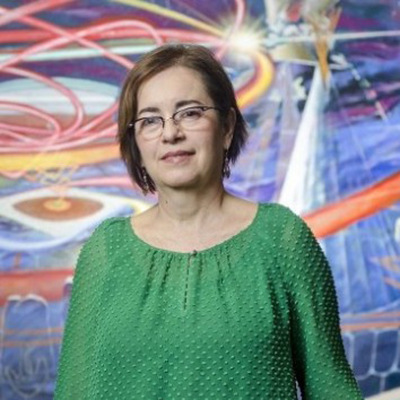
Rosa M. Cabrera, Ph.D, is the director of the Rafael Cintrón Ortiz Latino Cultural Center at UIC. Her research and praxis work focuses on understanding environmental and climate change problems as a social issue within larger systems of power and privilege; scrutinizing the role of social and environmental justice in museums and cultural centers; and using methodologies for public engagement that are centered on the arts and humanities to harness first voice stories and community knowledge to create culturally relevant and place-based solutions.
Cabrera is an adjunct faculty in the Department of Anthropology, Graduate College, Latin American and Latino Studies Program, and Museum and Exhibition Studies. She is also a Keller Science Action Center Associate at the Field Museum and a Mellon Faculty Fellow with the Humanities Action Lab.
Cabrera earned her Doctorate in Anthropology and Bachelors of Arts in Design from UIC and has talked extensively on the role of ethnic museums and cultural centers in shaping community identity–which was the topic of her dissertation. Prior to joining UIC, she was at the Field Museum where she led the “Cultural Connections” program, a partnership of more than 25 ethnic museums and cultural centers in Chicago that formed the Chicago Cultural Alliance in 2006 under her leadership. Between 2009-2011, she was part of a research team in a project with nine Chicago neighborhoods to better understand how diverse residents, including Latinxs in Pilsen, could be engaged in the Chicago Climate Action Plan. At UIC she has implemented projects such as the Heritage Garden to help the campus make explicit connections between environmental sustainability, cultural diversity, and social justice. She is currently working on the Humanities Action Lab “Climates of Inequality” project, which includes a traveling exhibit that amplifies local stories of environmental justice. The local story of La Villita, developed by students in her EJ course in partnership with Little Village Environmental Justice Organization (LVEJO) and Alianza Americas, reveals how environmental and social injustices intersect in this neighborhood.
Ralph Cintrón, PhD
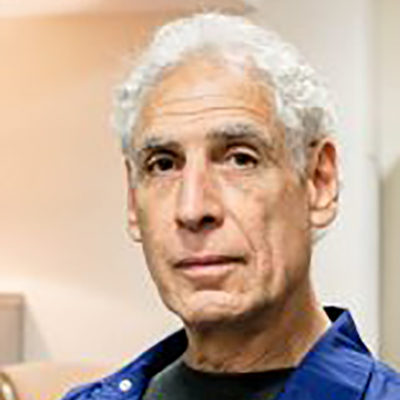
Ralph Cintrón holds a joint appointment in the Latino and Latin American Studies Program. His research and teaching interests are in rhetorical studies; ethnography, particularly urban ethnography; urban theory; theories of globalization; political theory, particularly the anthropology of democracy; and social theory. He is on the Executive Board of the Rhetoric Society of America. Research wise, he is currently participating in a multi-disciplinary, ethnographic study of specific Puerto Rican and Mexican neighborhoods in Chicago. After completing fieldwork, the study will become a jointly authored book. Much of his fieldwork occurs in an alderman’s office, but the larger project focuses upon labor and housing issues, the transnational political and economic forces that underpin these communities, and the evolution of political ideology. He is also associated with UIC’s International Center for the Study of Human Responses to Social Catastrophe. In association with the Center, he has done fieldwork in Kosova and co-authored essays on humanitarian interventionism and international state-building. In addition, he is associated with the International Rhetoric Culture Project, which brings anthropologists and rhetoricians together, at the Johannes Gutenberg University in Mainz, Germany. He is scheduled to be a co-editor for a forthcoming volume on politics. He is also producing a single-authored book that theoretically and ethnographically critiques a few of the key topoi of democracy (transparency, equality, freedom, rights) in order to explore the ruses of liberalism. He is a former Rockefeller Foundation Fellow, and one of his books, Angels’ Town: Chero Ways, Gang Life, and Rhetorics of the Everyday, won honourable mention for the Victor Turner Prize for Ethnographic Writing from the American Anthropological Association.
George Crabtree, PhD
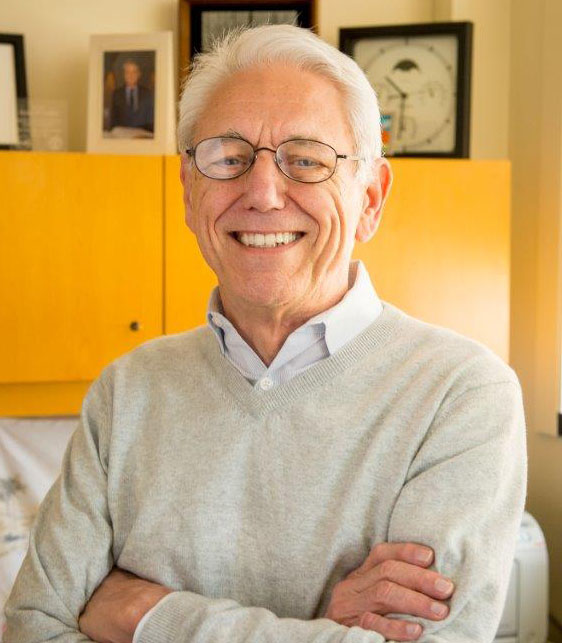
Dr. George Crabtree, an Argonne National Laboratory Senior Scientist and Distinguished Fellow, is Distinguished Professor of Physics & Electrical and Mechanical Engineering at the University of Illinois Chicago where he directs the Energy Initiative and Summer Institute on Sustainability and Energy, and he teaches courses on energy, climate change, and batteries. He is also co-director of Next Generation Electrochemistry and co-chairs the Chancellor’s Committee on Sustainability and Energy.
Dr. Crabtree is also Director of the Joint Center for Energy Storage Research. As JCESR Director, Crabtree directs the overall strategy and goals of the research program and operational plan, acts as liaison to executives of JCESR partner organizations, and represents JCESR with external constituencies and advisory committees.
He has won numerous awards for his research, including the Kammerlingh Onnes Prize for his work on the physics of vortices in high-temperature superconductors. This prestigious prize is awarded once every three years; Crabtree is its second recipient. He has won the U.S. Department of Energy (DOE) Award for Outstanding Scientific Accomplishment in Solid State Physics four times, a notable accomplishment. He won an R&D 100 Award for his pioneering development of magnetic flux imaging systems.
Crabtree is a Fellow of the American Physical Society, a Charter Member of ISI’s Highly Cited Researchers in Physics, a Member of the U.S. National Academy of Sciences and a Fellow of the American Academy of Arts and Sciences.
Crabtree has published more than 440 papers in leading scientific journals, collected more than 18,000 career citations, and has given more than 150 invited talks at national and international scientific conferences. His research interests include energy storage, materials science, nanoscale superconductors and magnets, superconductivity, and highly correlated electrons in metals.
He has led DOE workshops on next-generation energy storage, hydrogen, solar energy, superconductivity, and materials under extreme environments, and co-chaired the Undersecretary of Energy’s assessment of DOE’s applied energy programs. He has testified before the U.S. Congress on the hydrogen economy, meeting sustainable energy challenges and energy innovation Hubs. Crabtree earned his Ph.D. in Condensed Matter Physics from the University of Illinois at Chicago.
Ömür Harmansah, PhD
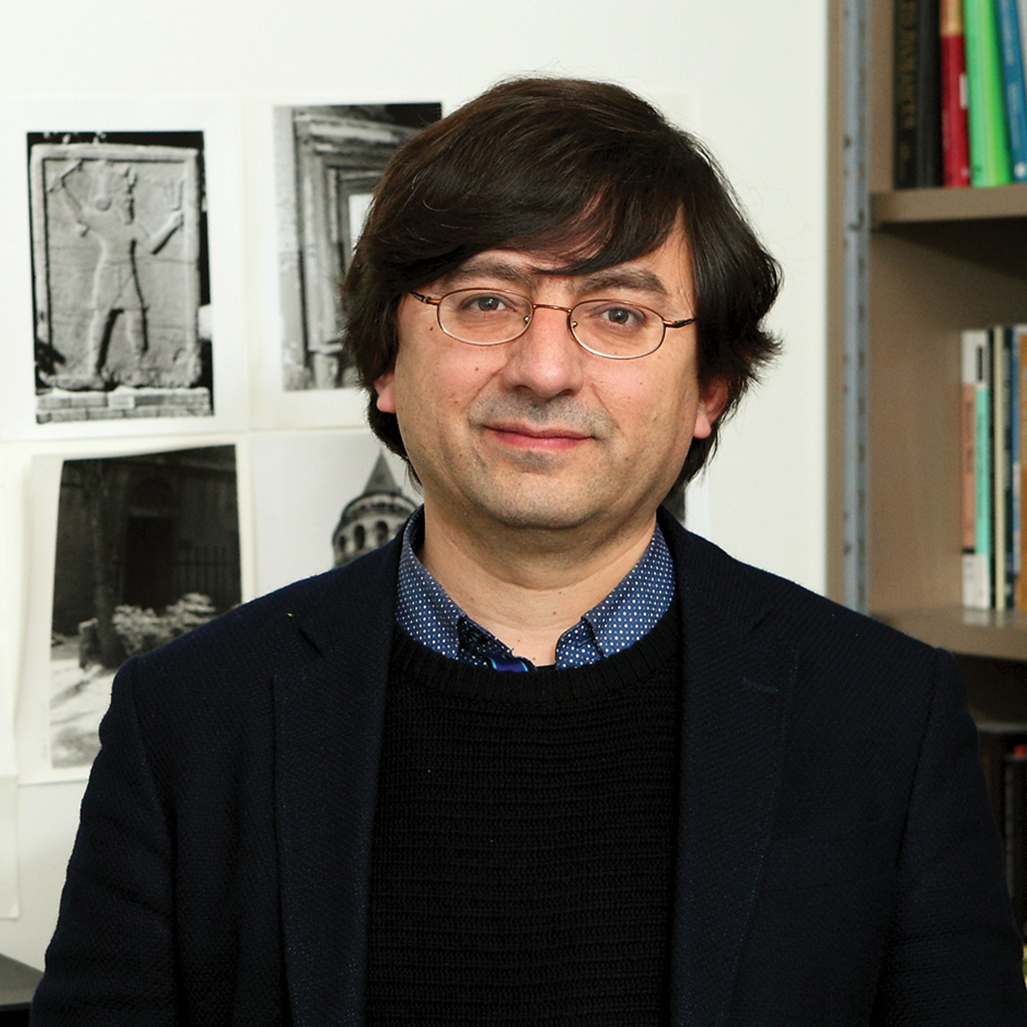
Ömür Harmansah’s current research focuses on the history of landscapes in the Middle East and the politics of ecology, place, and heritage in the age of the Anthropocene. As an archaeologist and an architectural historian of ancient Western Asia (a.k.a. the Near East), Harmansah specializes in the art, architecture, and material culture of Anatolia, Syria, and Mesopotamia during the Bronze and Iron Ages. His earlier research focused on cities, the production of architectural and urban space, critical studies of place and landscape, building technologies and architectural knowledge, and image-making practices in the urban and rural environments. He is the author of two monographs, Cities and the Shaping of Memory in the Ancient Near East, (Cambridge University Press, 2013), and Place, Memory, and Healing: An Archaeology of Anatolian Rock Monuments (Routledge, 2015). He also edited the volume Of Rocks and Water: Towards an Archaeology of Place (Oxbow Books, 2014) and co-edited Scribbling Through History: Graffiti, Places, and People from Antiquity to Modernity (Bloomsbury, 2018). He is one of the authors of the new global art history survey textbook The History of Art: A Global View. Prehistory to the Present (Thames & Hudson, 2021). For other publications, please consult his academia page.
Harmansah co-directed (with Dr. Peri Johnson) Yalburt Yaylasi Archaeological Landscape Research Project, a diachronic regional survey and landscape archaeology project addressing questions of the politics of water and borderlands in Konya Province of west-central Turkey (2010-2021). This project was supported by a major Post-PhD grant from the Wenner-Gren Foundation for Anthropological Research, Humanities Without Walls Consortium, Suna-İnan Kıraç Foundation Research Center on Mediterranean Civilizations, The Richard B. Salomon Faculty Research Award at Brown University, and the School of Art and Art History at UIC. Results of this long-term field project are being prepared for publication in the form of a multi-authored monograph.
Harmansah was the Lead Principal Investigator for the 3-year multi-institutional collaborative project entitled “Political Ecology as Practice: A Regional Approach to the Anthropocene” (2017-2019). This project was supported by the Humanities Without Walls consortium, funded by the Andrew W. Mellon Foundation. This project included a master class and a symposium with Bruno Latour in October-November 2017. The project was concluded with the exhibition All have the same breath held at Gallery 400 (January 18-March 9, 2019)
Harmansah is currently working on a new monograph on landscape history and political ecology in the Middle East, addressing the challenges brought about by the debates around the Anthropocene, climate change, and environmental crisis, with emphasis on landscape archaeology and archaeological field practice. This monograph, tentatively titled Landscapes of the Anthropocene: Archaeology, Politics, and Heritage in the Middle East (under contract with Routledge), brings together fieldwork-based insights from current debates in new materialism and political ecology to discuss the precarity of archaeological landscapes and cultural heritage under the impact of late capitalism.
Born and raised in Turkey, Harmansah studied architecture and architectural history at the Middle East Technical University (Ankara, Turkey), and received his PhD from University of Pennsylvania in the History of Art (2005). He previously taught at Reed College (Portland, OR) and Brown University (Providence, RI) before joining the faculty at UIC’s School of Art & Art History in 2014. He received various sabbatical and research awards, including Koç University’s Research Center for Anatolian Civilizations Senior Fellowship (twice, 2009-2010 and 2019-2020), Brown University’s Cogut Center for the Humanities Faculty Fellowship (Fall 2012), and University of Texas at Austin’s Donald D. Harrington Faculty Research Fellowship (2013-2014). He was elected as a “Rising Star” in Art, Architecture, and the Humanities in 2016 by UIC’s Office of the Vice Chancellor.
Kathryn Nagy, PhD
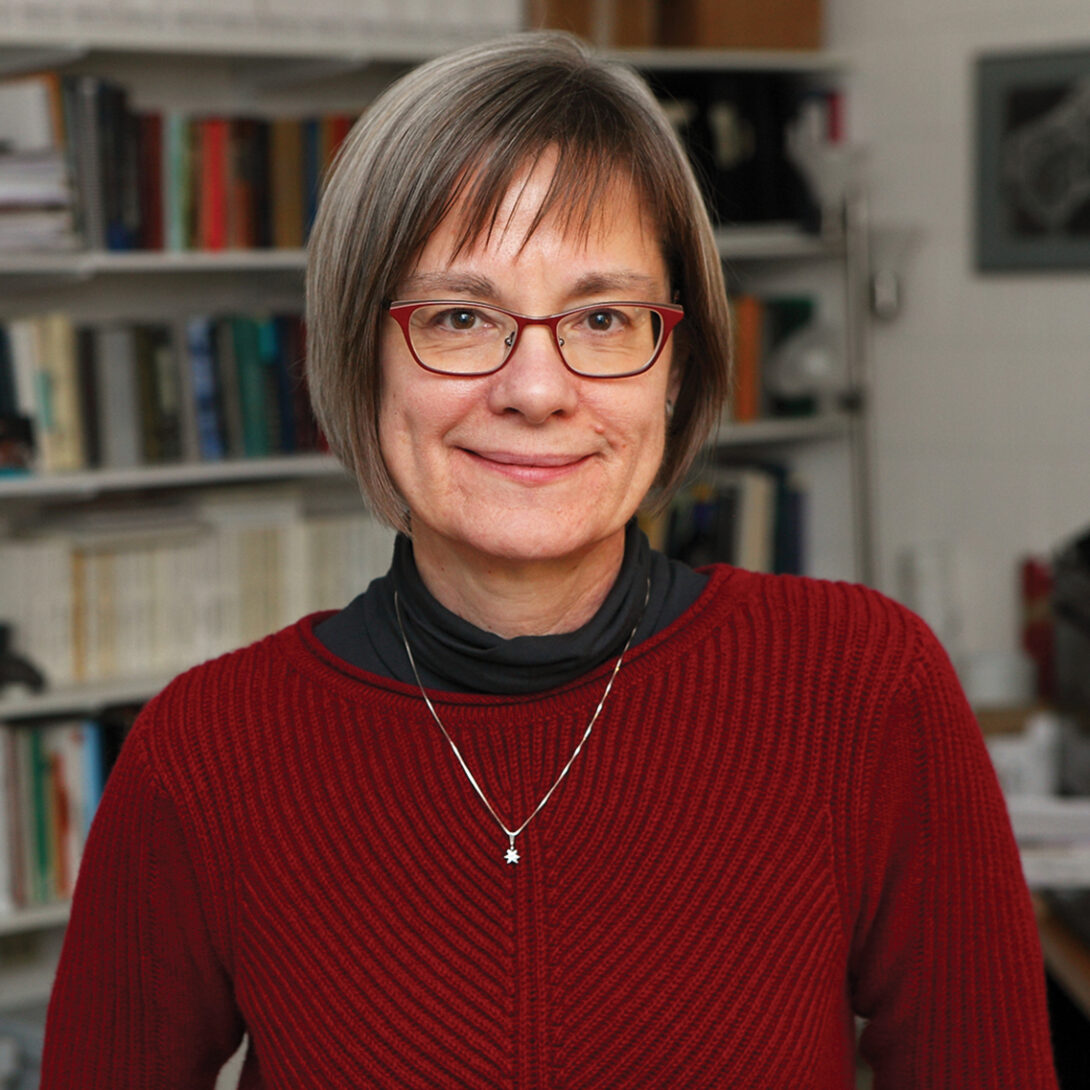
Kathryn Nagy, PhD, is Head of Earth and Environmental Sciences at UIC. Her area of research includes geochemical and biogeochemical reactions in mineral-organic matter-water systems pertinent to Earth’s surface and near-surface regions; exploration of molecular-scale processes responsible for limiting or enabling transport of chemical consituents in natural waters is accomplished using a variety of experimental approaches, natural materials, field samples, and advanced analytical techniques including synchrotron radiation; and identifying and characterizing environmental reactions involving the neurotoxic element mercury, other trace elements, and nutrient sulfur.
Kathryn received her PhD in Geology at Texas A&M University and completed post-doctoral work at Yale University. She is the author of numerous papers across Nature Communications, Geochimica et Cosmochimica Acta, Environmental Science & Technology. She is a recipient of numerous awards, most recently a grant of $450k from the National Science Foundation to help high school chemistry students and teachers from seven Chicago public schools study and address urban heavy metal contamination in their communities.
Thomas Aláan, DMA
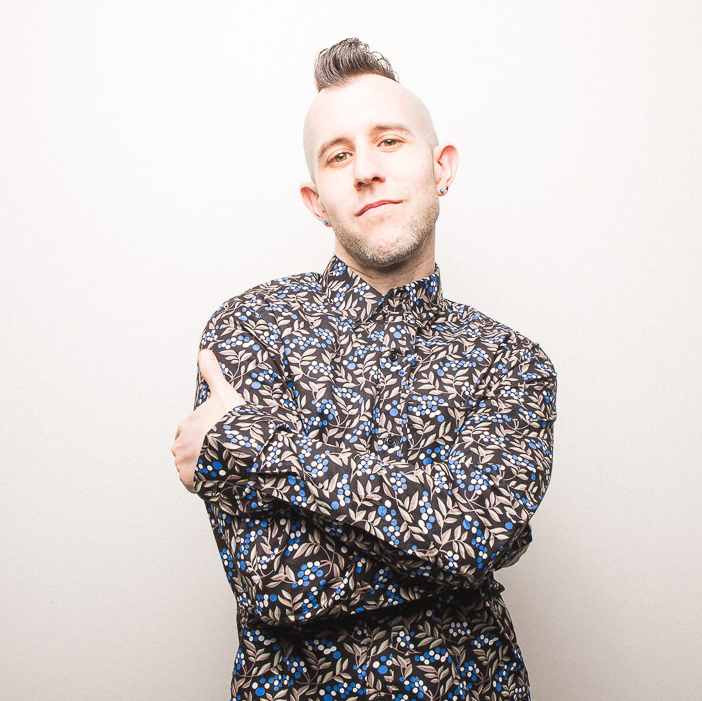
Thomas Aláan has developed sustainability and energy-related programs for the UIC Energy Initiative in partnership with local and nationwide organizations since 2010. Most notable is the acclaimed Summer Institute on Sustainability and Energy (SISE). Now in its 12th year, the program is the UIC Energy Initiative’s most visible program. Thomas also works with Jordi Cabana on the Next Generation Electrochemistry (NGenE) workshop, and has developed several programs over the years including the iThink lecture series, the University of Common Sense, and ENERnational. He’s a “utility player,” performing everything from web and graphic design to marketing, development to grant writing, and developing and supporting curriculum and programs.
Thomas teaches interdisciplinary music courses like Music as a Tool for Environmentalism and Change and The Music and Science Connection in the UIC Honors College. He has presented and moderated panels on the use of music and the arts in environmental spaces at SISE, the Association for the Advancement of Sustainability in Higher Education, and Loyola University’s Climate Change Conference, and presented on music more broadly through the Helena Music Teachers Association, The People’s Music School, and the Self Employment in the Arts (SEA) Art Business Entrepreneurship Workshop. He co-directs Chicago’s The EcoVoice Project, which makes makes music that informs, connects, and inspires people to act for environmentally just causes.
Thomas received his Doctor of Musical Arts (DMA) in Performance from the University of Wisconsin – Madison, where he was a Paul Collins Wisconsin Distinguished Graduate Fellow studying with Jim Doing. His research interests include the performance practice and ornamentation of Sean-nòs singers; educational frameworks for approaching science, philosophy, and environmentalism through music; and the use of music in sociopolitical and environmental movements. He also holds a Master of Arts in Vocal Pedagogy, a Bachelor of Arts in Music Education, and a certificate in Emerging Nonprofits from The Law Project. He is on the artistic leadership team of OperaWorks™, co-directors the Bach and Beethoven Experience, is Assistant Conductor of Choirs at Holy Name Cathedral, and volunteers as Vice President of the Board of Directors for Beyond Legal Aid.